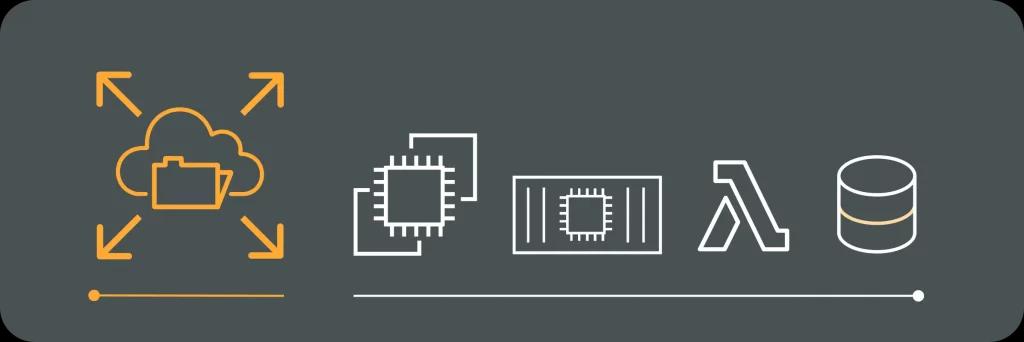DevOps Definitions: PaaS (Platform as a Service)


DevOps is a software development methodology that focuses on collaboration, communication, and integration between software developers and IT operations teams. It aims to automate the processes of software development, deployment, and operation to increase efficiency and ensure faster delivery of applications. PaaS, which stands for Platform as a Service, is a cloud computing service model that provides a platform for software developers to build, deploy, and manage applications without having to worry about the underlying infrastructure.
Understanding the Basics of DevOps
DevOps is not just a set of tools or technologies, but a cultural shift in the way software development and IT operations work together. It emphasizes collaboration, shared responsibilities, and continuous improvement.
The Evolution of DevOps
DevOps has evolved from the need to address the challenges faced by organizations in traditional software development and deployment processes. In the past, developers and operations teams worked in silos, leading to inefficiencies, delayed deployments, and frequent errors. DevOps emerged as a solution to bridge this gap and promote collaboration.
Initially, DevOps focused on automation and continuous delivery, but it has now expanded to include a broader set of practices and principles.
Key Principles of DevOps
There are several key principles that guide DevOps practices:
- Collaboration and communication between teams: Developers and operations teams work closely together, breaking down barriers and fostering effective communication.
- Automation: DevOps emphasizes automating manual tasks to minimize errors and reduce the time required to deploy and manage applications.
- Continuous integration and continuous delivery (CI/CD): DevOps encourages the integration and testing of code frequently, leading to faster and more reliable deployments.
- Monitoring and feedback: DevOps teams continuously monitor applications and gather feedback to identify areas for improvement.
Collaboration and communication between teams is a fundamental aspect of DevOps. By bringing developers and operations teams together, organizations can leverage the diverse skill sets and perspectives of both groups. This collaboration fosters a sense of shared responsibility and ownership, leading to better outcomes for the entire organization.
Automation is another key principle of DevOps. By automating manual tasks, such as code deployment and infrastructure provisioning, organizations can reduce human error and free up valuable time for teams to focus on more strategic initiatives. Automation also enables faster and more frequent deployments, allowing organizations to deliver new features and updates to their customers more rapidly.
Introduction to PaaS
PaaS, or Platform as a Service, is a cloud computing service model that provides developers with a powerful platform to build, deploy, and manage applications. It is a game-changer in the world of software development, as it eliminates the need for developers to worry about the underlying infrastructure, allowing them to focus on creating and delivering value-added features.
The Concept of Platform as a Service
At its core, PaaS provides a complete development and deployment environment, encompassing a wide range of tools, frameworks, libraries, and runtime systems. This comprehensive platform empowers developers to develop, test, and deploy applications without the need to manage the underlying infrastructure.
Imagine a world where developers can fully immerse themselves in the creative process, without being bogged down by the complexities of infrastructure management. PaaS makes this vision a reality, providing developers with a streamlined and efficient workflow that enables them to focus on what they do best: writing code and delivering innovative solutions.
Furthermore, PaaS offers a plethora of services that are essential for modern application development and deployment. These services include database management, security features, scalability options, and integration capabilities. With PaaS, developers have access to a robust toolkit that empowers them to build cutting-edge applications with ease.
Benefits of Using PaaS
There are numerous benefits to using PaaS for application development and deployment. Let’s explore some of the key advantages:
- Increased productivity: PaaS provides developers with a pre-configured development environment, enabling them to hit the ground running. By eliminating the need to set up and manage infrastructure, developers can dedicate their time and energy to writing code and delivering business value.
- Scalability and flexibility: One of the standout features of PaaS is its ability to scale seamlessly as user demand increases. With an elastic infrastructure that can adapt to changing workloads, applications built on PaaS can effortlessly handle spikes in traffic without compromising performance.
- Rapid deployment: Time is of the essence in today’s fast-paced digital landscape. PaaS enables developers to deploy applications quickly and efficiently, without the need for manual intervention or complex configuration. This rapid deployment capability allows organizations to stay ahead of the competition and deliver value to their customers in record time.
- Cost-effective: PaaS eliminates the need for organizations to invest in and maintain their own infrastructure. By leveraging the infrastructure provided by the PaaS provider, organizations can significantly reduce costs associated with hardware, software, and maintenance. This cost-effectiveness allows businesses to allocate their resources more efficiently and focus on strategic initiatives.
As you can see, PaaS is a powerful tool that revolutionizes the way applications are developed and deployed. By providing developers with a comprehensive platform and a wide range of services, PaaS empowers them to unleash their creativity and deliver exceptional software solutions. Whether you are a seasoned developer or just starting your journey, PaaS is a game-changer that will take your applications to new heights.
The Role of PaaS in DevOps
PaaS (Platform as a Service) plays a crucial role in enabling and supporting DevOps practices. It provides the necessary infrastructure and tools for developers and operations teams to collaborate effectively and deliver applications faster.
But what exactly does PaaS bring to the table? Let’s dive deeper into how PaaS supports DevOps practices.
How PaaS Supports DevOps Practices
PaaS facilitates the automation of various stages of the software development life cycle, including code compilation, testing, and deployment. By offering a comprehensive set of tools and services, PaaS simplifies and streamlines the development process.
Imagine this: developers can focus on writing code, while PaaS takes care of the underlying infrastructure and provides a ready-to-use development environment. This standardized and consistent environment reduces the chances of configuration errors and compatibility issues, allowing teams to work seamlessly.
PaaS and Continuous Integration/Continuous Deployment
Continuous integration and continuous deployment (CI/CD) are two key practices in DevOps. PaaS makes it easier to implement CI/CD pipelines by providing automated tools and environments for code integration, testing, and deployment.
With PaaS, developers can push code changes to a shared repository, which triggers automated testing and deployment processes. This enables faster feedback and ensures that applications are continuously updated and delivered to end-users.
But that’s not all! PaaS also offers scalability and flexibility, allowing applications to adapt to changing demands. Whether it’s handling sudden traffic spikes or expanding the application’s capabilities, PaaS provides the necessary resources to scale up or down effortlessly.
Furthermore, PaaS supports collaboration between developers and operations teams. By providing a centralized platform for communication and coordination, PaaS fosters a culture of collaboration, breaking down silos and promoting cross-functional teamwork.
In conclusion, PaaS is a powerful enabler for DevOps practices. It empowers teams to automate processes, streamline development, and deliver applications faster. With its comprehensive set of tools and services, PaaS ensures that developers can focus on what they do best, while the platform takes care of the rest.
Comparing PaaS with Other Service Models
While PaaS offers many advantages, it is important to understand how it compares to other service models, such as IaaS (Infrastructure as a Service) and SaaS (Software as a Service).
PaaS vs. IaaS (Infrastructure as a Service)
Unlike IaaS, which provides virtualized infrastructure resources, PaaS focuses more on the application development and deployment layer. With IaaS, developers have more control over the infrastructure and can customize it according to their requirements. PaaS, on the other hand, abstracts away the underlying infrastructure, providing a more streamlined development experience.
PaaS vs. SaaS (Software as a Service)
PaaS is often confused with SaaS, as both are cloud computing service models. However, while SaaS provides ready-to-use software applications, PaaS provides a platform for developers to build and deploy their own applications. PaaS offers more flexibility and customization options compared to SaaS.
Choosing the Right PaaS for Your DevOps Needs
When selecting a PaaS provider, there are several factors to consider:
Factors to Consider When Selecting a PaaS
- Supported programming languages and frameworks: Ensure that the PaaS platform supports the programming languages and frameworks used by your development team.
- Scalability and performance: Look for PaaS providers that offer scalable infrastructure and high-performance environments to handle growing workloads.
- Integration capabilities: Check if the PaaS platform integrates with your existing toolchain and supports the DevOps practices you follow.
- Security and compliance: Assess the security measures and compliance certifications offered by the PaaS provider to ensure your applications and data are protected.
Top PaaS Providers for DevOps
There are several PaaS providers in the market that cater to the needs of DevOps teams. Some of the top PaaS providers include:
- Amazon Web Services (AWS) Elastic Beanstalk
- Microsoft Azure App Service
- Google Cloud Platform (GCP) App Engine
- IBM Cloud Foundry
These providers offer a wide range of features and services to support DevOps practices and enable seamless application development and deployment.
In conclusion, PaaS is a crucial component in the DevOps ecosystem. It provides a platform for developers to build, deploy, and manage applications, freeing them from the complexities of infrastructure management. By leveraging the benefits of PaaS, organizations can accelerate their software delivery and improve collaboration between development and operations teams, ultimately leading to faster innovation and better customer experiences.
Your DevOps Guide: Essential Reads for Teams of All Sizes
Elevate Your Business with Premier DevOps Solutions. Stay ahead in the fast-paced world of technology with our professional DevOps services. Subscribe to learn how we can transform your business operations, enhance efficiency, and drive innovation.






